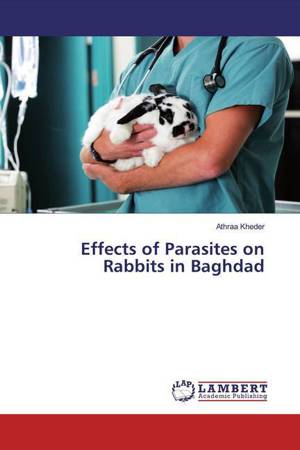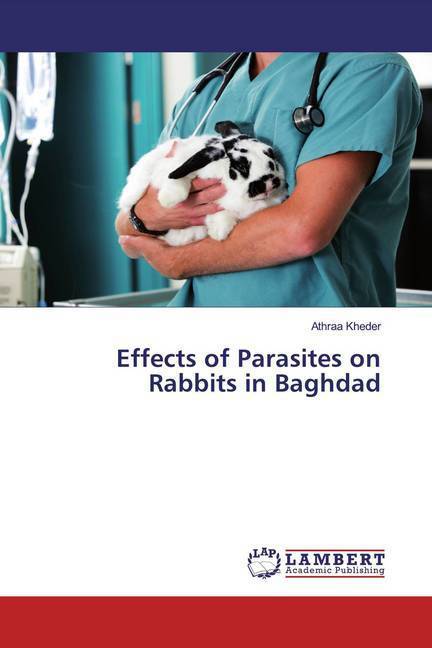
- Afhalen na 1 uur in een winkel met voorraad
- Gratis thuislevering in België vanaf € 30
- Ruim aanbod met 7 miljoen producten
- Afhalen na 1 uur in een winkel met voorraad
- Gratis thuislevering in België vanaf € 30
- Ruim aanbod met 7 miljoen producten
Zoeken
Omschrijving
This study was conducted to determine the prevalence of gastrointestinal and blood parasites in local rabbits at Baghdad province. A total of 80 local breed rabbits were dissected during the period of December /2012 to September/ 2013. There is highly significant percentage of total parasite infected local breed rabbits - it reached 83.75%. The results revealed that a high infection rate (72.5%) was recorded in the intestinal protozoal infection. This study recorded for the first time in Baghdad presence a percentage of infection to each: Blood protozoal parasites in a total percentage reach 35% for the species (Theileria, Babesia, Anaplasma and Plasmodium) with infection rate (23.75, 5, 6.25, 25%) respectively. Also the intestinal protozoa infection rates were (Cryptosporidium 17.5% and Giardia 5%). Whereas the pin worm recorded the infection rate of 10%. While the larvae of cestode recorded an infection rate 38.75%. The following 10 Eimeria species in rabbits were recorded: E.perforans 31.25%, E.piriformis 27.5%, E.irresidua 11.25%, E. media 17.5%, E.flavescens 28.75%,28.75%, E.coecicola 13.75%, E.exigua 18.75%, E.intestinalis 23.75%, E.magna 28.75% E. stiedae 17.5%.
Specificaties
Betrokkenen
- Auteur(s):
- Uitgeverij:
Inhoud
- Aantal bladzijden:
- 152
- Taal:
- Engels
Eigenschappen
- Productcode (EAN):
- 9783330022249
- Verschijningsdatum:
- 30/04/2020
- Uitvoering:
- Paperback
- Formaat:
- Trade paperback (VS)
- Afmetingen:
- 152 mm x 229 mm
- Gewicht:
- 231 g

Alleen bij Standaard Boekhandel
+ 122 punten op je klantenkaart van Standaard Boekhandel
Beoordelingen
We publiceren alleen reviews die voldoen aan de voorwaarden voor reviews. Bekijk onze voorwaarden voor reviews.











